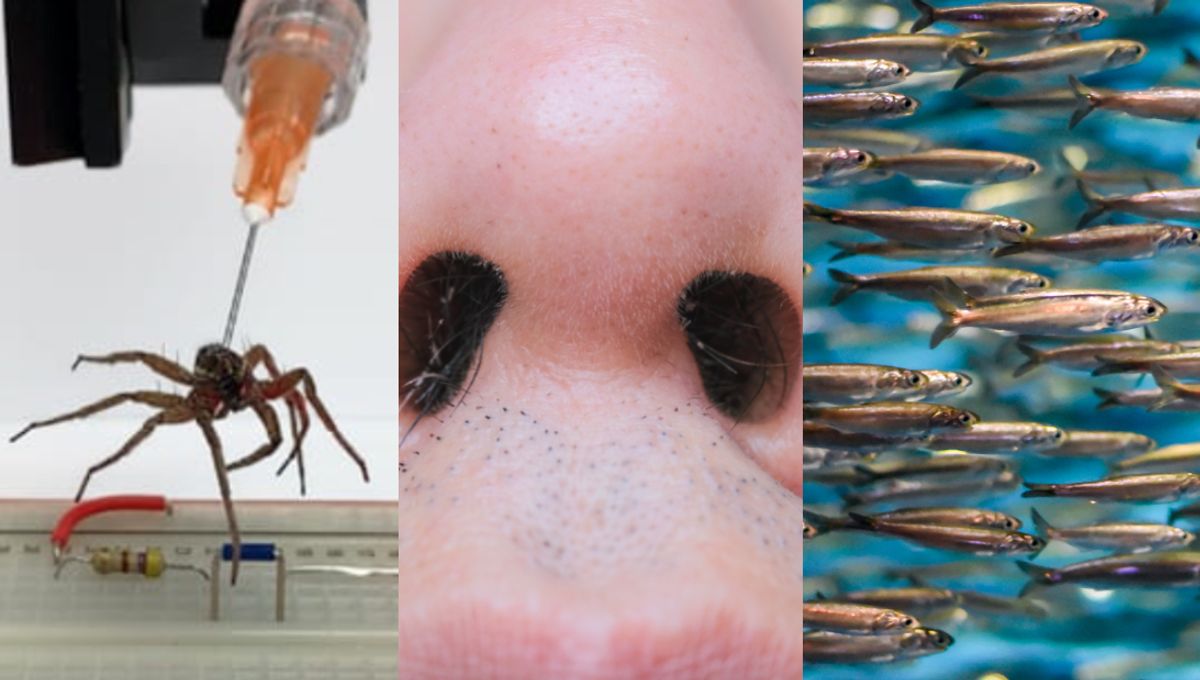
The 2023 Ig Nobel Prizes prove there is still plenty of room in science for the weird and amusing, even under the pressure of ever-tightening research budgets. Highlights include how having bored teachers affects the student experience, and how the mating behavior of very small fish changes water mixing in the world’s largest ocean. There’s even a place for a famously controversial scientist, almost forty years after his death.
The Ig Nobel prizes are awarded for research that “makes you laugh and then makes you think”. In the case of the Chemistry Ig Nobel, the prize answers a question many of us have asked before: Why do geologists like to lick fossils?
It’s a question of such widespread interest IFLScience recently interviewed Dr Ranadall Irmis about it, complete with plenty of personal experience. However, it turns out Professor Jan Zalasiewicz answered the question in a rigorous fashion for the Paleontological Association newsletter in 2017. He even licked a rock at the ceremony. In case anyone thinks these awards only go to non-serious scientists, Zalasiewicz led the project to define the start of the current geological era, the Anthropocene.
The Physics Ig Nobel was for peer-reviewed research exploring how large congregations of fish contribute to the mixing of waters at a site where coastal upwelling brings nutrients close to the surface.
The authors found that anchovies and other fish increase turbulence at these sites 10-100 times when they gather for their annual sex parties. This has a substantial, and previously overlooked, impact on the oceans’ heat balance. “Our results demonstrate that biologically driven turbulence can be a highly effective mixing agent, and call for a re-examination of its impacts on productive upper ocean regions,” the authors reported.
While this year’s physics prize went for important work, no matter how amusing it may sound, it’s less immediately obvious how the Medicine Ig Nobel helps society. The authors tested whether the number of nasal hairs was the same in each nostril of corpses. The fact the work was co-authored by scientists from the USA, Iran, and Vietnam, among other countries, might suggest a peace prize is in order instead, but the paper in question explains that nasal hair loss from alopecia can increase allergies and upper respiratory infections. Knowing how symmetrical this is may contribute to a better understanding.
The Ig Nobels have never felt bound to the same categories as the Nobel Prizes, making up new awards each year as the need arises. This time that includes a Public Health Prize for a toilet that analyzes your wees and poos as you do them. Finally, humanity outsourcing the really dirty jobs to robots.
The aforementioned study on how students’ boredom level is affected by having a bored teacher won the Education prize, along with one by some of the same team on whether expecting to be bored leads to actual boredom. Never has the Ig Nobels’ tradition of a child interrupting the acceptance speech by saying “Please stop! I’m bored” been so appropriate.
A prize for Mechanical Engineering was created to reward (if that’s the word) work IFLScience covered before, on using dead spiders to pick up things that would otherwise prove tricky.
The discovery that electrified chopsticks make food taste saltier, thereby decreasing demand for unhealthy salt, inspired the creation of a Nutrition Prize.
You don’t even need to be alive to win a prize. Stanley Milgram – yes that Stanley Milgram – died in 1984, but he was awarded an Ig Nobel for Psychology. Not for his notorious work on people following orders to commit torture, but for a fifty-year-old study on how many people need to stand on a city street and stare at the sky before others join them. Thankfully, his co-author Len Bickman was still alive to collect the ten trillion (Zimbabwean) dollars.
Source Link: Horny Anchovies And Electrified Chopsticks Among This Year’s Ig Nobel Prizes